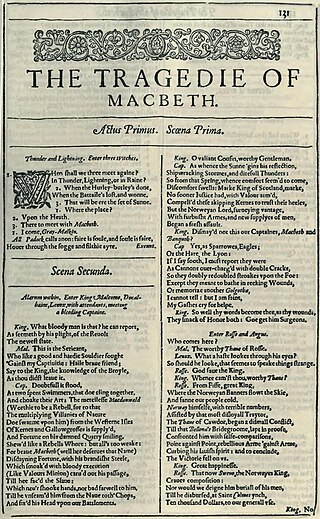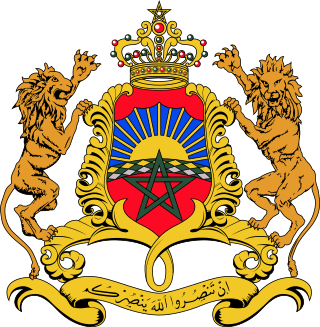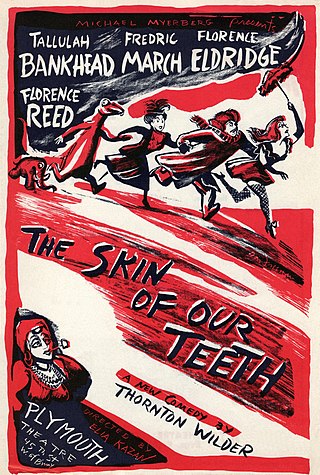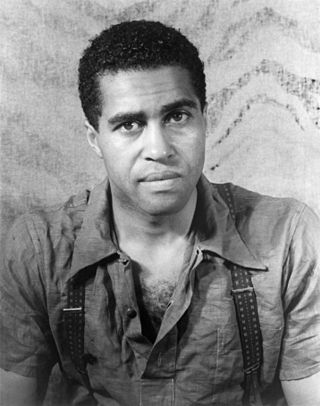Related Research Articles

Macbeth is a tragedy by William Shakespeare. It is thought to have been first performed in 1606. It dramatises the damaging physical and psychological effects of political ambition on those who seek power. Of all the plays that Shakespeare wrote during the reign of James I, Macbeth most clearly reflects his relationship with King James, patron of Shakespeare's acting company. It was first published in the Folio of 1623, possibly from a prompt book, and is Shakespeare's shortest tragedy.

Othello is a tragedy written by William Shakespeare, around 1603. The story revolves around two characters, Othello and Iago.

Akinwande Oluwole Babatunde "Wole" Soyinka is a Nigerian playwright, novelist, poet, and essayist in the English language. He was awarded the 1986 Nobel Prize in Literature for his "wide cultural perspective and... poetic overtones fashioning the drama of existence", the first sub-Saharan African to win the Prize in literature.

Moulay Ismail Ibn Sharif, born around 1645 in Sijilmassa and died on 22 March 1727 at Meknes, was a Sultan of Morocco from 1672 to 1727, as the second ruler of the 'Alawi dynasty. He was the seventh son of Moulay Sharif and was governor of the province of Fez and the north of Morocco from 1667 until the death of his half-brother, Sultan Moulay Rashid in 1672. He was proclaimed sultan at Fez, but spent several years in conflict with his nephew Moulay Ahmed ben Mehrez, who also claimed the throne, until the latter's death in 1687. Moulay Ismail's 55-year reign is the longest of any sultan of Morocco. During his lifetime, Isma’il amassed a harem of over 500 women with more than 800 confirmed biological children, making him one of the most prodigious fathers in recorded history.

The 'Alawi dynasty – also rendered in English as Alaouite, 'Alawid, or Alawite – is the current Moroccan royal family and reigning dynasty. They are an Arab sharifian dynasty and claim descent from the Islamic prophet Muhammad through his grandson, Hasan ibn Ali. Their ancestors originally migrated to the Tafilalt region, in present-day Morocco, from Yanbu on the coast of the Hejaz in the 12th or 13th century.

Noble Lee Sissle was an American jazz composer, lyricist, bandleader, singer, and playwright, best known for the Broadway musical Shuffle Along (1921), and its hit song "I'm Just Wild About Harry".

The Skin of Our Teeth is a play by Thornton Wilder that won the Pulitzer Prize for Drama. It opened on October 15, 1942, at the Shubert Theatre in New Haven, Connecticut, before moving to the Plymouth Theatre on Broadway on November 18, 1942. It was produced by Michael Myerberg and directed by Elia Kazan with costumes by Mary Percy Schenck. The play is a three-part allegory about the life of mankind, centering on the Antrobus family of the fictional town of Excelsior, New Jersey. The epic comedy-drama is noted as among the most heterodox of classic American comedies — it broke nearly every established theatrical convention.
Sidi Mohammed ben Abdallahal-Khatib, known as Mohammed III, born in 1710 in Fes and died on 9 April 1790 in Meknes, was the Sultan of Morocco from 1757 to 1790 as a member of the 'Alawi dynasty. He was the governor of Marrakesh around 1750. He was also briefly sultan in 1748. He rebuilt many cities after the earthquake of 1755, including Mogador, Casablanca, and Rabat, and Abdallah Laroui described him as "the architect of modern Morocco." He also defeated the French in the Larache expedition in 1765 and expelled the Portuguese from Mazagan (al-Jadīda) in 1769. He is notable for having been the leader of one of the first nations to recognize American independence in his alliance with Luis de Unzaga 'le Conciliateur' through correspondence and Unzaga's secret intelligence service and led by his brothers-in-law Antonio and Matías de Gálvez from the Canary Islands. He was the son of Mawlay Abdallah bin Ismail and his wife a lady of the Chéraga guich tribe.

Cloud Nine is a 1979 British two-act play written by British playwright Caryl Churchill. It was workshopped with the Joint Stock Theatre Company in late 1978 and premiered at Dartington College of Arts, Devon, on 14 February 1979.

Sijilmasa was a medieval Moroccan city and trade entrepôt at the northern edge of the Sahara in Morocco. The ruins of the town extend for five miles along the River Ziz in the Tafilalt oasis near the town of Rissani. The town's history was marked by several successive invasions by Berber dynasties. Up until the 14th century, as the northern terminus for the western trans-Sahara trade route, it was one of the most important trade centres in the Maghreb during the Middle Ages.

Robert Earl Jones, sometimes credited as Earl Jones, was an American actor and professional boxer. One of the first prominent black film stars, Jones was a living link with the Harlem Renaissance of the 1920s and 1930s, having worked with Langston Hughes early in his career.

The Black Guard or ‘Abid al-Bukhari were the corps of black-African slaves and Haratin slave-soldiers assembled by the 'Alawi sultan of Morocco, Isma‘il ibn Sharif. They were called the "Slaves of Bukhari" because Sultan Isma‘il emphasized the importance of the teachings of the famous imam Muhammad al-Bukhari, going so far as to give the leaders of the army copies of his book. This military corps, which was loyal only to the sultan, was one of the pillars of Isma'il's power as he sought to establish a more stable and more absolute authority over Morocco.
Paul Carter Harrison was an American playwright and professor. Harrison was known for works such as his Obie Award winning play The Great MacDaddy and scholarly writings on theater and performance. Between 1962 and 1982, he produced or directed numerous American and Dutch plays and screenplays.

Othello is a character in Shakespeare's Othello. The character's origin is traced to the tale "Un Capitano Moro" in Gli Hecatommithi by Giovanni Battista Giraldi Cinthio. There, he is simply referred to as the Moor.

Carlton Lindsay Barrett, also known as Eseoghene, is a Jamaican-born poet, novelist, essayist, playwright, journalist and photographer, whose work has interacted with the Caribbean Artists Movement in the UK, the Black Arts Movement in the US, and pan-Africanism in general. Leaving Jamaica in the early 1960s, he moved to Britain, where he freelanced as a broadcaster and journalist, also travelling and living elsewhere in Europe, before deciding to relocate to West Africa. Since the latter 1960s he has been based mainly in Nigeria, of which country he became a citizen in the mid-1980s, while continuing his connection to cultural ventures in the UK and US.
William Blackwell Branch was an American playwright who was also involved in many aspects of entertainment, including journalism, media production, editing, a short-lived career acting for television as well as talking on the radio. He "wrote, directed, and produced extensively for the stage, television, radio, and his own media consulting and production firm".
The Battle of Wadi al-Laban occurred in March–April 1558 between Saadians and Ottoman Algerian forces under Hasan Pasha, the son of Hayreddin Barbarossa. It took place north of Fes, at Wadi al-Laban, an affluent of the Sebou River, one day north of Fes.
Mohammed ben Abdallah is a Ghanaian playwright, "the major Ghanaian playwright of his generation". Director and founder of the Legon Road Theatre, he became head of School of Performing Arts at the University of Ghana in 2003. His works portray postcolonial drama that integrates both indigenous and European themes relevant in contemporary African societies. Written in 1972, ben Abdullah's first book, The Slaves, became the foremost non-American dramatic play to win the Randolph Edmund's Award of the National Association for Speech and Dramatic Arts. Ben Abdallah held cabinet positions during the Military government of the Provisional National Defence Council.
Alikiona (Consequences) is a play written in 1969 by Tanzanian playwright Ebrahim Hussein. Alikiona, originally written in Kiswahili, was translated to English by Joshua Williams. The play tells the story of an affair between a woman, Sadia and her lover, Abdallah. It centers on the discovery of the affair by Sadia's husband, Omari. The play is one act and is typically performed with five actors.
Bill Okyere Marshall was a Ghanaian writer.
References
- 1 2 3 Killam, Douglas; Rowe, Ruth, eds. (2000). The Companion to African Literatures. Indiana UP. pp. 157–58. ISBN 9780253336330.
- 1 2 Molette, Barbara (April 1973). "Atlanta". Black World . pp. 86–92.
- ↑ Aidoo, Anthony A.; Gibbs, James (2001). "Mohammed ben Abdallah at fifty". In Banham, Martin; Gibbs, James; Osofisan, Femi (eds.). African Theatre: Playwrights & Politics. African theatre. Vol. 2. Indiana University Press. pp. 84–88. ISBN 9780253214584.